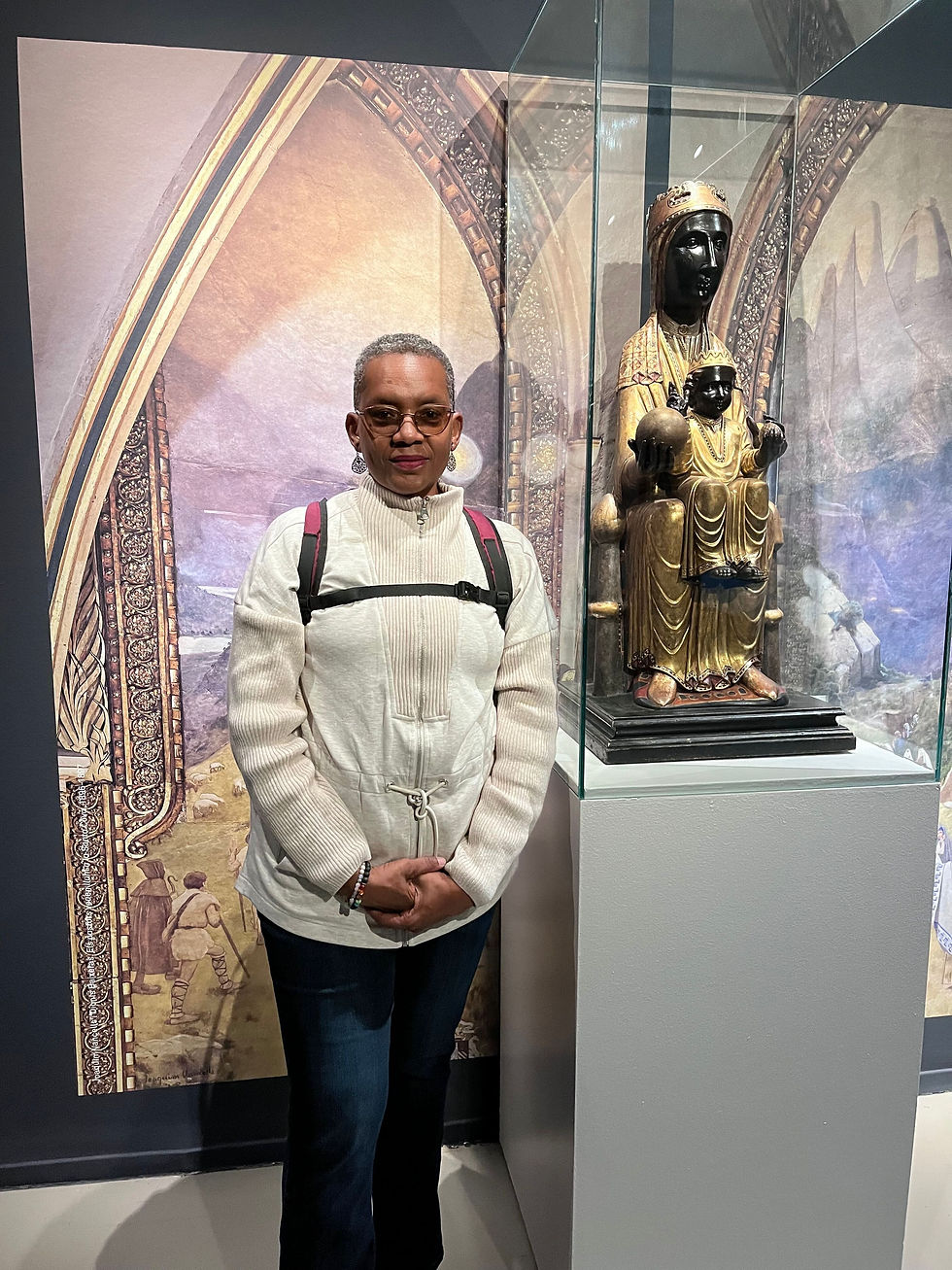🧘🏾♀️💗How To Achieve Inner Peace During Times Of Crisis
- tirrahargrow
- Oct 8, 2023
- 3 min read

Crises seldom occur on a convenient schedule. You may be overseas enjoying a much needed vacation only to find yourself in the midst of an emerging pandemic, on lockdown, unable to leave your apartment, and unsure of when you’ll be able to return home. Or, perhaps, all seems to be going well and you lose your job at the exact moment a loved one becomes seriously ill and needs round-the-clock care.
The point is troubling events can happen at any moment and on multiple fronts simultaneously. The longer and more fully you live, the more of these times you will traverse. It can be tempting to try to avoid them, but they will still occur and you’ll be likely to suffer even more as a result of your evasive tactics.
This is where inner peace comes in. If you make it a practice to cultivate a rapid return to calm, despite what is happening in the world, you will pass through any crisis relatively unscathed. Rather than being laid low, you will be poised to take all you can from the experience. As the Dalai Lama says, “I find hope in the darkest of days, and focus in the brightest. I do not judge the universe.”
Like the Dalai Lama we can carve that kind of equanimity into our basic structure. The following are a few helpful tips to whittle away what doesn’t serve and help the image you want to see emerge from the forms of your life.
💗Develop Anchor Points
There are many patterns we can build into our days that encourage the development of a more resilient mind, body, energy and emotions. How that will look is individual, but the need is universal. Everyone can benefit from consciously crafting grounding and centering practices that fit their life.
One practice, mindfulness meditation, has a growing body of evidence to support its use in pain relief, anxiety reduction, enhanced self-awareness and diminishment of negative ruminations. In a study for Social Cognitive and Affective Neuroscience Zeidan et al, found that anxiety was reduced in participants with as little as twenty minutes of mindfulness meditation.
These benefits were found in both those with diagnosed anxiety disorders and in healthy subjects. Furthermore, mindfulness meditation increased function in the higher processing centers of the brain and reduced activation in the parts of the brain involved with rumination.1 It seems clear that mindfulness meditation is a good tool for those wishing to attain inner peace and have the capacity to sustain it during a crisis.
💗Become a Self-Care Afficionado
When things go sidewise, good habits tend to go out the window. However, if you’ve built solid behaviors into the fabric of your life, you will have ready access to them and will stray less during a crisis.
For example, if you know what hours are healthiest for you to keep, you will aim to honor that as much as you can when challenges arise. Also, if you have a foundation of solid, well balanced nutrition, you will automatically do better at managing your blood sugar and knowing what your body needs and when.
On the mental/emotional front there are also some key strategies that are worth fostering in daily life. In a study for Frontiers in Psychology which analyzed responses to lockdown for Covid-19, Pellerin and Raufaste concluded, “Results suggest that if emotional well-being were targeted, one would prepare by reinforcing hope and gratitude of being alive. If psychological well-being is targeted, one might work on self-efficacy, personal wisdom, and gratitude for being alive. For social well-being, a key could be gratitude toward the world. Finally, if inner well-being (peace of mind) is sought, working on optimism and acceptance could be the way.”2
In other words, there are behaviors that are specifically protective for the mind, for the emotions, for social well-being and for inner well-being. Working at these attitudes on a good day will provide resilience on a bad one. Inner peace is a lifelong pursuit, if you diligently work at it, you may not avoid crisis, but you’ll survive it with more grace.
References:
1. Fadel Zeidan, Katherine T. Martucci, Robert A. Kraft, John G. McHaffie, Robert C. Coghill, Neural correlates of mindfulness meditation-related anxiety relief, Social Cognitive and Affective Neuroscience, Volume 9, Issue 6, June 2014, Pages 751–759, https://doi.org/10.1093/scan/nst041
2. Nicolas Pellerin* and Eric Raufaste Psychological Resources Protect Well-Being During the COVID-19 Pandemic: A Longitudinal Study During the French Lockdown Front. Psychol., 04 December 2020 https://doi.org/10.3389/fpsyg.2020.590276

Comments